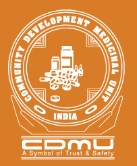Sustainability in Healthcare: Need for Equitable Access to Pharmaceutical products
Sustainable Development Goal 3, i.e – Good health and well-being for all are essential to eliminating inequality and poverty and ensuring societies are resilient in the face of the steep economic and climate-related challenges ahead. But there’s a lot of work to do in order to ensure healthy futures: creating a transparent healthcare supply chain, ensuring affordable medicine for everyone, and curbing counterfeit medicines, to name a few.

Gaps in the Indian healthcare system
According to a Finance Commission report, In India, nearly 70 % of expenditure on health has to be borne by the patients and this pushes about 60 million Indians into poverty each year. High out-of-pocket expenditure poses the largest risk to the population living below, and at the margins of, the poverty line. Quality healthcare has remained elusive for many people in the country. The commission pointed out the high dependence of the common people on the private sector for their healthcare needs. “Irrespective of the ability to pay, people increasingly seek private health care even for minor illnesses like cold, fever, and diarrhea.
It is observed that the use of half of the medicines is improper in prescription, dispensing, selling, or administration and not as per guidelines in 30-40 % of patients both in the private and public sectors. In most cases, generic medicines are not used and it leads to an increase in healthcare costs. Moreover, the National Pharmaceutical Pricing Authority of India on Friday announced an increase in the Wholesale Price Index (WPI) resulting in the increase of prices for nearly 800 scheduled medicines ( listed in the National List of Essential Medicines) which are used to treat the majority of common ailments.
Against the backdrop of the Covid-19 pandemic, the prices of essential items such as edible oil and pulses have shot up across India. This is making life difficult for common people. The Covid-19 pandemic has left many with depleted economic resources and no source of income. Now, they also have to contend with a spike in prices of essential goods such as edible oil and pulses. In such a situation, the price rise of common medicines cut deep into the pocket of the common man.
CDMU – Bridging the gaps sustainably
CDMU bridges those gaps so that healthcare providers have access to quality products at a fair price. We work to expand equitable access to comprehensive, integrated, quality, people-, family- and community-centered healthcare services, with an emphasis on creating and maintaining a transparent pharmaceutical supply chain.
CDMU’s strategy is aligned with the UN Sustainable Development Goals (SDGs). SDG3: ‘Ensure healthy lives and promote well-being for all at all ages’ is of course particularly relevant to CDMU’s work, but we believe that we can create the most value by looking at all SDGs to see where we can have the biggest impact. As we work towards our mission, we believe that this should never be at the cost of human rights, fair labour practices, and the environment, in line with the principles which adhere to the UN Global Compact.
